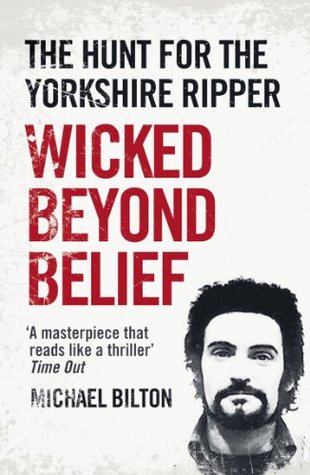More on this book
Kindle Notes & Highlights
Read between
December 16, 2020 - December 26, 2021
There can be no freedom without a system of laws and we need these dedicated men and women to enforce those laws. The British police service remains one of our pivotal institutions; it safeguards much of what we take for granted.
clad
Even today one of the cornerstones of forensic science remains the ‘exchange principle’ first developed by one of Bertillon’s students, Edmond Locard: ‘If there is contact between two items, there will be an exchange.’ When anyone comes into contact with an object or someone else, a cross-transfer of physical evidence occurs.
They will leave evidence of that contact and they will take some evidence with them.
They had simply been unlucky victims. In terms of solving murders, finding killers without a personal motive was a nightmare for everyone – the public as well as the police.
Hoban said it taught him a valuable lesson. Never take anything for granted. ‘Should mass fingerprinting be required again – people would be fingerprinted in their own front room.’ It had been too easy for a killer determined to cover his tracks to collude with someone else to cover up his crime.
The signature was the attack to the abdomen.
‘Murder is murder,’ said one. ‘Even prostitutes are somebody’s daughter, somebody’s sister, maybe somebody’s wife and somebody’s mother.’
By tradition and by statute chief constables are independent office holders, a key feature of British democracy. A local police authority or watch committee could oversee the work of the police, but they couldn’t tell the chief constable what to do.
‘No Minister of the Crown can tell him that he must or must not keep observation on this place or that; or that he must not prosecute this man or that one.
Nor can any Police
Authority tell him so. The responsibility of law enforcement lies on him. He is answ...
This highlight has been truncated due to consecutive passage length restrictions.
Britain’s criminal justice system relied on the operational autonomy of the police.
Nowadays, he could probably have sued for wrongful imprisonment; the officers involved would have been disciplined, the Police Complaints’ Authority involved, questions asked in Parliament, with the media becoming self-righteous and the civil rights lobby having a field day.
‘An intelligent man is one who knows. The more intelligent man knows what he knows. But the most intelligent man understands what he doesn’t know.’
If, in court, the accused was able to show he had a perfect alibi for a murder wrongly attributed to the series, the prosecution case would be considerably weakened.
He had only ever handcuffed two people in his life: ‘I believe in saying “You’re nicked. You are going down the nick and you will come down with me.” I’ve always treated people, whatever they’ve done, as human beings and as well as I could possibly treat them.’
During the second week the registration number PHE 355G appeared on the printout sent up from Hendon. When cross-checked with the Swansea computer, it was confirmed it belonged to a red Ford Corsair owned by a Peter William Sutcliffe of 6 Garden Lane, Heaton, Bradford. He was scheduled for another interview – his third.
The Fleet Street tabloids began a campaign to call in Scotland Yard. An editorial in the Sun urged the force to swallow their pride: ‘The fact is that they seem no nearer capturing this monster than they were four years ago.’ It brought a glib response from a senior detective: ‘They haven’t caught their own Ripper yet, what makes them think they can catch ours?’
Even more tragically, among the eighteen ‘phantoms’ only Sutcliffe had featured as a ‘triple-area sighting’, a cross-area sighting, and as someone who had a vehicle that featured in the ‘tracking’ inquiry.
“Once is happenstance. Twice is coincidence. The third time is enemy action.”
He had set up static observation points at night throughout the West Yorkshire force area. Sutcliffe, in his Rover 3.5, drove fast and erratically past one of these observation points in Grosvenor Road, Manningham, at about 11.30 p.m. on 26 June 1980. Thinking the vehicle might be stolen, the two uniformed constables in an unmarked police car gave chase, with speeds reaching 80 m.p.h. They didn’t stop the driver until they reached 6 Garden Lane and found the Rover parked in the driveway.
A warning that women should not go out alone at night was seen as a police curfew, shifting responsibility for the killings on to the victims away from the Ripper himself – or from the police who had pathetically failed to catch him.
That same evening Mrs Doreen Hill, the heartbroken mother of the murdered student, bravely went on television and made a desperate appeal that moved the entire nation. With great calm and dignity she pleaded with ‘people everywhere’ to help find the killer. ‘I want to ask everyone, not just in Leeds or around Leeds, but all over the country to help us find the person who killed my daughter. Please think. Perhaps he lives in your house. He could live in a mansion, in a block of flats, or down the street. He lives somewhere, he works for someone – please think.’
Psychologists have another term for the process whereby people put off making difficult decisions when they receive information which challenges passionately held beliefs: cognitive dissonance.
‘We stress the need to record and document all decisions taken.’


